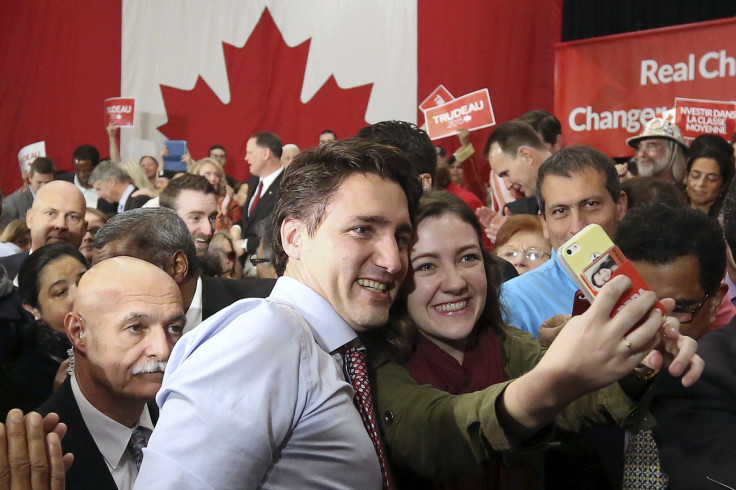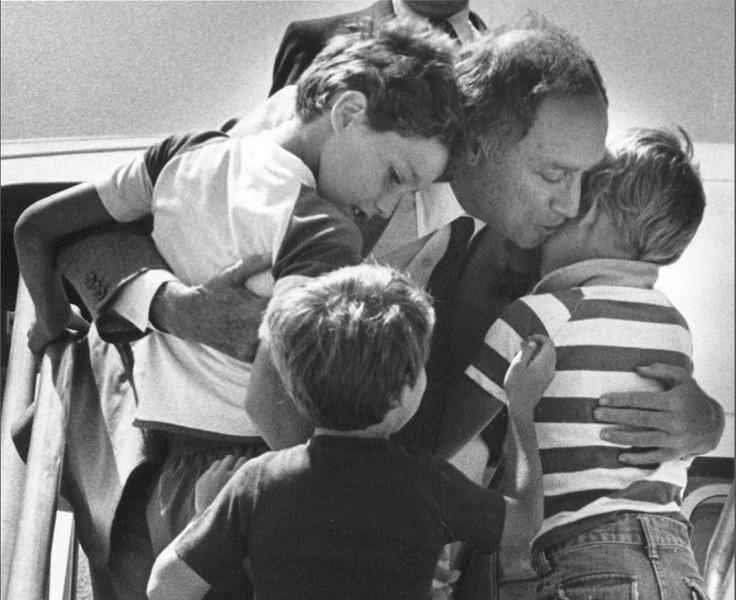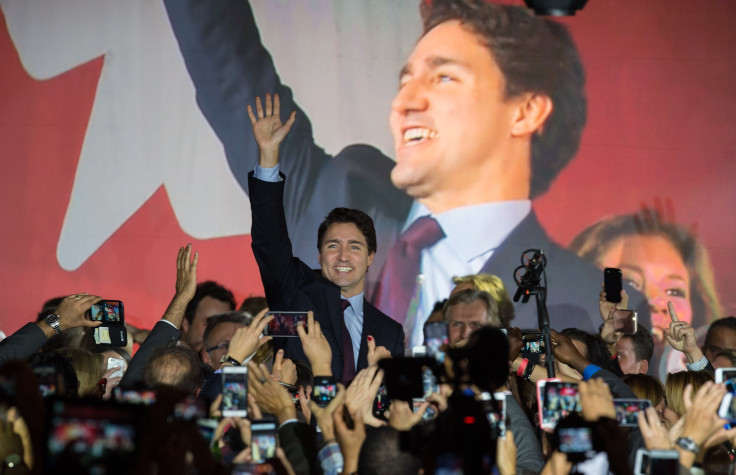Justin Trudeau: Who Is Canada's New Prime Minister?

“I didn’t make history tonight, you did,” 43-year-old Justin Trudeau, who led Canada’s Liberal Party to a decisive victory in parliamentary elections, told a cheering crowd of supporters during his victory speech late Monday.
Canada’s latest leader has promised to “bring real change” to the country after nearly a decade of conservative rule. Just a few months ago, Trudeau -- the eldest son of legendary former prime minister Pierre Trudeau -- was considered an unlikely contender. Derided by his opponents as a “pretty boy” with a famous last name, Trudeau -- who took over the party leadership in 2013 -- was considered too inexperienced to lead a country whose economy is stagnating.

“I'm not saying 'no' forever, but not now,” an unnamed woman was shown as saying in a Conservative Party ad attacking Trudeau. “He has some growing up to do.”
In addition to campaign ads that poked fun at his “nice hair,” many believe that the tactics employed by the incumbent Stephen Harper -- who referred to his challenger condescendingly as “Justin” -- played a key role in ending nine years of Conservative rule.
“I think the Conservative advertising ultimately has backfired,” Liberal candidate Kevin Lamoureux told Reuters. “He's more than met the expectations that people had of him.”

However, Trudeau’s bold pledge to boost spending on infrastructure to jump-start the economy, despite the creation of “a modest short-term deficit” struck a chord with the Canadian electorate, helping the Liberals engineer a turnaround.
Since the start of his election campaign, Trudeau sought to distance himself from his predecessor on divisive issues such as the legalization of marijuana, and the Conservatives’ social policies -- like the proposed ban on public servants wearing a niqab, promising “positive politics.” Additionally, he also vowed to raise taxes on the richest 1 percent to fund cuts for the middle classes -- a promise that found resonance among a huge majority of Canadians.
In an interview with the Guardian in July, Trudeau said: “If there’s one thing that recent history in Canada has shown it’s that campaigns really matter. And there’s a tremendous volatility among voters who are just looking for the right alternative.”
Trudeau, who spent much of his childhood in the public eye, sought to provide that alternative, despite taking a long and circuitous route to politics. Before becoming a member of parliament in 2008, Trudeau -- who earned a degree in education from the University of British Columbia --tried his hand at teaching, engineering, bungee-jumping coaching, environmental geography, charity boxing and acting.
On Monday, Trudeau said, in his victory speech: “We beat fear with hope, we beat cynicism with hard work.
“Most of all we defeated the idea that Canadians should be satisfied with less, that good enough is good enough, and that better just isn’t possible. … This is Canada, and in Canada better is always possible.”
© Copyright IBTimes 2024. All rights reserved.






















